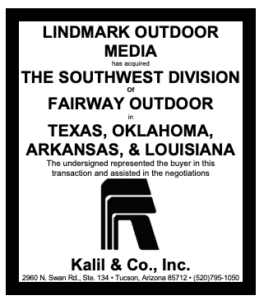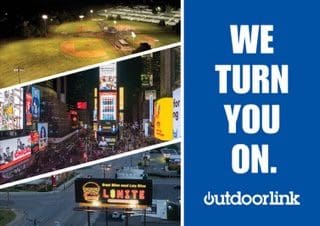
Insider published in its November 25th edition an article on Caltrans’ Political Sign Restrictions. In particular, Caltrans, a quasi-government transit system, has imposed time restrictions on political advertisements, specifically prohibiting them on its facilities except during the 90 days before an election. Norcal Outdoor Media initiated litigation after Caltrans refused to display a message promoting “Trump 2020”, because the presidential election is more than 90 days away. In doing so, Norcal is relying on the trilogy of landmark First Amendment cases, which generally prohibit regulation of signage based on the content displayed on the sign.
Insider also reported on these three US Supreme and Federal and State Appellate Court opinions in its November 8 and 14 editions. One of these cases, Auspro vs Texas Department of Transportation, addressed almost exactly the same sign restriction imposed by Caltrans. Specifically, Auspro was cited by TxDOT for displaying its “Ron Paul for President” sign well outside the window when the Texas HBA and associated administrative rules exempted such signage. The statute was Texas Transportation Code Section 391.005, and the rule was 43 Texas Administrative Code Section 21.146, both of which exempted from regulation “a sign erected solely for and relating to a public election if the sign… is erected not earlier than the 90th day before the date of the election and is removed not later than the 10th day after the election date.” The Third Texas Court of Appeals held the provisions unconstitutional, and the Texas Legislature and the Texas Transportation Commission have recently repealed them.
In its most recent article, Insider initially cautioned that the case might not succeed, but then went on to note that “if Caltrans prohibited any ads the court case would be more likely to succeed.” I disagree with the former, and agree with the later takes from Insider. In fact, Insider discussed in its September 27, 2018 edition how the First Amendment is implicated when the government has created and maintained a “Public Forum.” A good example from today’s news is the judicial ruling that President Trump created and maintains a Public Forum in his tweeter account, which therefore prohibits him from blocking those critical tweets from appearing on his tweeter page. Likewise, if Caltrans is deemed to have created a Public Forum on its transit facilities, it is in turn subject to the First Amendment prohibition on content-based sign restrictions. Therefore, by first creating a Public Forum, and then operating it in a constitutionally suspect content-based manner, Caltrans may very well suffer the same type of judicial invalidation of its political sign restrictions that Texas did in Auspro.
[wpforms id=”9787″]
Paid Advertisement

















